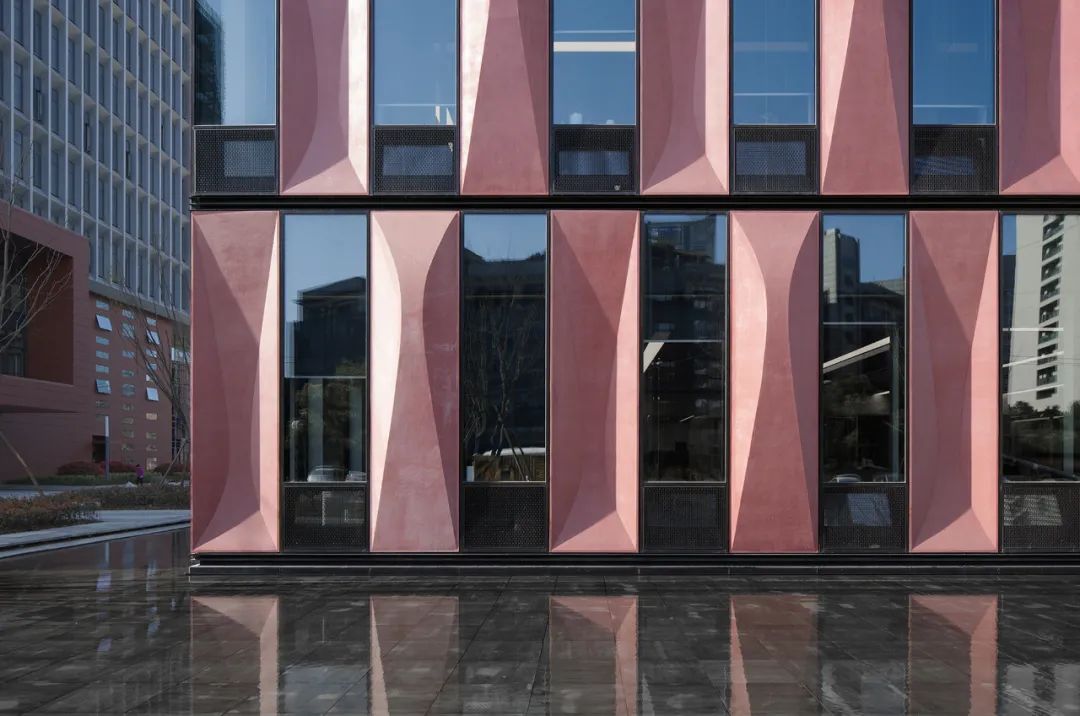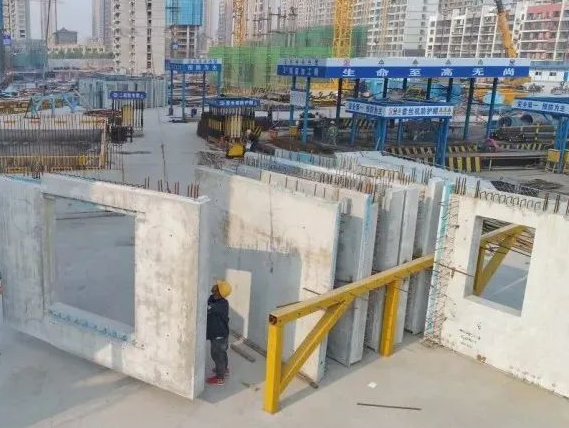Poetic construction of precast buildings ▶ Zijin District, architectural design and Research Institute of Zhejiang University
▲ office space © Uad9 + studio, Zhao Qiang ▲ equipment pipeline crossing beam © Uad9 + studio ▲ display space of cast structure pipeline system © Zhao Qiang 02 perceptual experience triggers architectural poetry.
AC Jun shares with you the works of Zijin Academy of architectural design and Research Institute of Zhejiang University.
The structural form of the steel structure makes the shaping of the cast architectural space more flexible and relaxed.
The overall space is connected in series by the three-story communication lobby.
The main beam adopts honeycomb beam, and the main equipment and pipelines are arranged through the beam in an orderly manner to ensure the indoor clear height as much as possible, And make the exposed ceiling space full of technical beauty.
This is a new construction mode that combines technology and art, and also drives a new working mode.


Based on the framework of the overall narrative space with time as the main line, the construction of individual space is more specific, which is the direct impression of people experiencing architecture, the elements of space, the materials of space The form of space directly affects the atmosphere to be created by architecture.
Therefore, architects need to express their architectural design and transform “poetry” into a popular language that people can see and understand.
Under the reflection of the entrance water system, the whole building is no longer bound to a solidified industrial park environment.
The structural columns, beams and floors are also precast.
The perceptual experience in architecture is not scattered, but the aggregation of energy.
It comes from the architectural design and Research Institute of Zhejiang University.
Through the integrated design method of full system integration and full professional participation, we create an activity place full of humanistic feelings, emphasize that “industrialization is also poetic”, and hope to break the stereotype of rough, crude and cold general precast buildings.
It not only has the function of external reception, but also holds relevant exhibitions and forums from time to time, which is the most important part of the whole space design..
Does this break through the conventional construction method, the so-called industrialized building mean “rough” and “low quality”? How should industrialized architecture express its own architectural poetry? Building B1, Zijin District, architectural design and Research Institute of Zhejiang University (hereinafter referred to as B1 floor) is located in Hangzhou Zijin Zhongchuang Town, which is jointly built by Hangzhou Xihu District People’s government and Zhejiang University.
It is a national AAA precast building and a three-star green building.
When the design orientation of architecture is biased towards technology or humanities, it will break the original balance of architecture.
The development of society is inseparable from the progress of technology, and human habitation is inseparable from poetic life.
It is not only the intersection of pedestrian flow lines, but also the focus of the whole architectural image, but also the living room for users to rest after work and leisure.
At the beginning of the design, we put forward an idea: not being coerced by technology, let Technology serves the design.
The decision-making and perception of any technology are based on reason.
01 space order creates a poetic building.
Under the industrial background of vigorously developing architectural industrialization, rapid construction has increasingly become the mainstream of the market, That is, a construction mode of using precast system to design and build house buildings.
▲ perforated aluminum plate © Zhao Qiang’s architectural design is no longer just pure rational thinking or pure perceptual output.

For precast architecture, it is the product of the times, inseparable from time, place and people.
Such a group of indoor public open spaces around people’s moving lines are full of flow dynamics, and the spatial interfaces melt with each other.
The cube rising from the middle of B1 building is the central high hall of the entrance.


▲ indoor large step public space © Uad9 + studio, Zhao Qiang ▲ first floor side hall © Uad9 + studio, Zhao Qiang ▲ uadcafe © Zhu Xinliang ▲ uadcafe © Zhu Xinliang ▲ vertical greening atrium on the second floor © Zhao Qiang’s whole building seems to be a three-dimensional garden, coupled with a variety of choices of vertical transportation, entering the office space on the north and south sides, making people’s walking in the space full of fun.

As a precast building demonstration project of the Ministry of construction in 2019, the prefabrication rate is as high as 85% and the assembly rate is 96.8%.
It will change with the renewal of the times, and its core essence will not change.
The floor slab adopts local composite floor slab to minimize the volume of cast-in-situ concrete.
▲ exploded view of project function © Uad9 + studio ▲ UHPC external wall panel © Uad9 + studio ▲ main entrance of the building © Zhao Qiang ▲ facade details © Zhao Qiang ▲ facade details © Through a path, Zhao Qiang enters the interior of the building through the front yard of the waterscape.
The overall shape of B1 building is composed of three cubes.
In the process of pursuing technological progress in architectural industrialization, the technology-oriented architectural value tends to the pursuit of pure rational precision, which makes the economy and efficiency improve continuously, and the regional and humanistic relationship of architecture become loose.
Time is the prerequisite for the existence of spatial diversity.
The interior space is mainly decorated with bright white as a whole, making the space bright and bright; The decoration shall be as few as possible, leaving the space blank to form visual continuity.

▲ Zijin District, architectural design and Research Institute of Zhejiang University © Zhao Qiang ▲ Zijin District, architectural design and Research Institute, Zhejiang University © Zhao Qiang’s architectural poetry is embodied in the ingenious integration experience of life and site, which is essentially the care for people.
The north and South cubes are large Bay Office functional units, and the middle connector is a high atrium.
People either communicate with people on the big steps of the main hall, take a nap in uadcafe, walk in the side hall to watch regularly updated architectural exhibitions, or stop in front of the cast vertical greening atrium and look at the sky through photovoltaic glass.

The facade wallboard of the office unit adopts the same module UPHC external wallboard to realize a set of formwork, which can be used in front and back to form two colors and four concave convex basic units, Using different combinations of these basic units, the shadow in a micro arc formed in the sun forms a rhythmic and rational facade expression.

